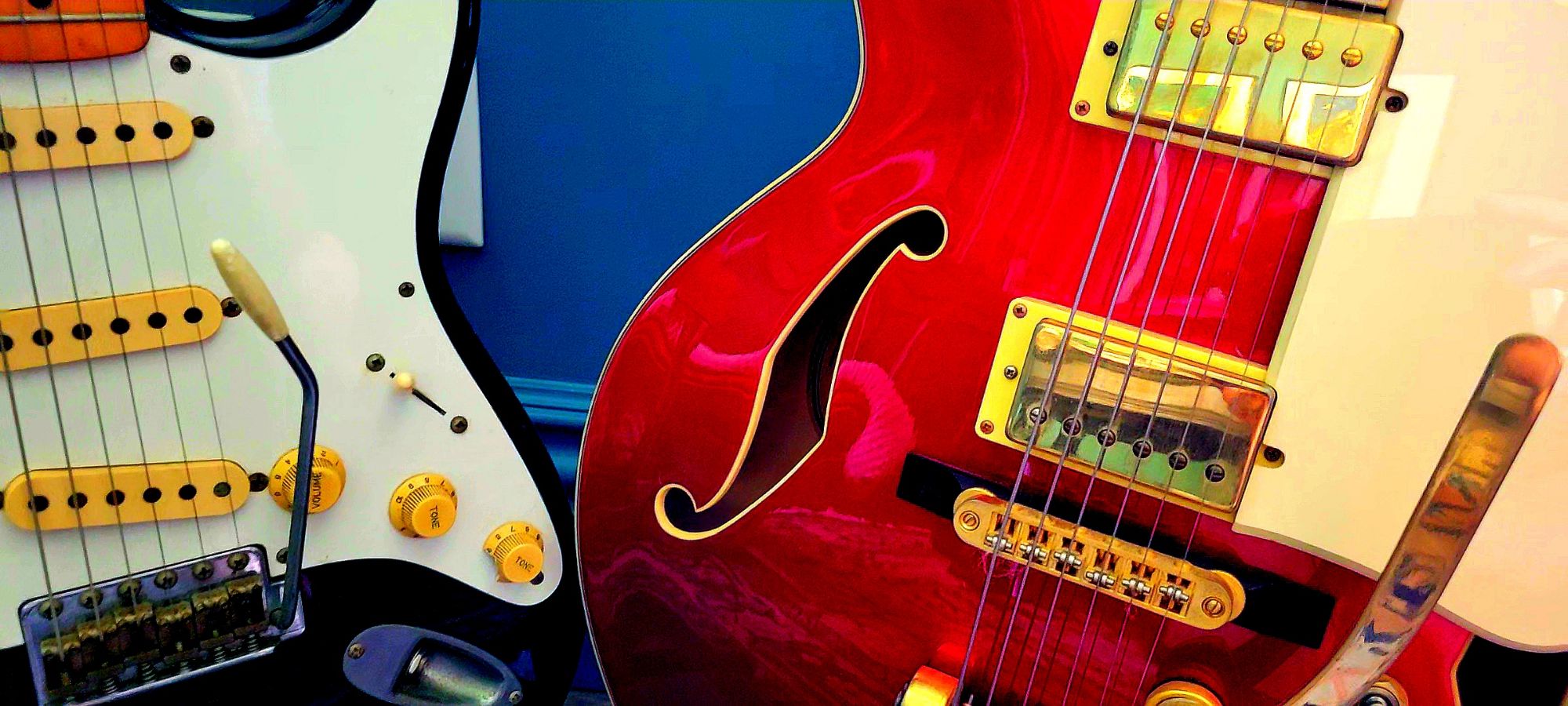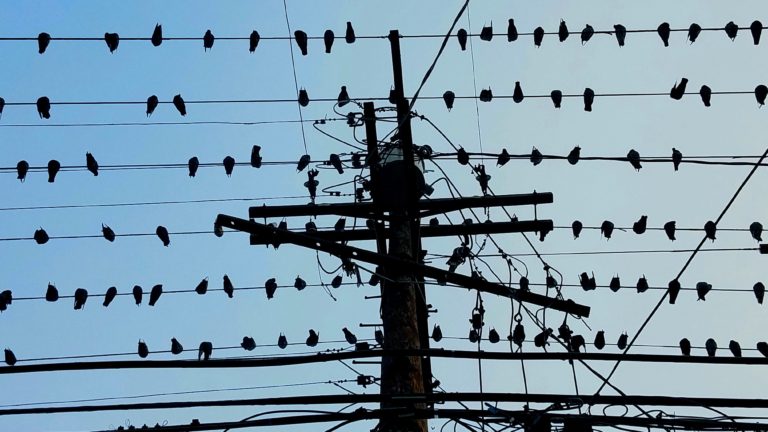Jim Speese – Fiction
This was a unique set in the history of The Other Band. Rather than the usual wrangling to get “his”...

THIRTEEN DAYS
(THE OTHER BAND’S LAST SHOW)
It was the last gig of The Other Band, but few people in the summer crowd knew that. Only the wives and the girlfriends and Robbie, Shawn’s best friend, knew. As Shawn moved with practiced speed, carrying his keyboards onto the outdoor stage at the Pikeville Rod and Gun Club, he thought about that fact. It had been a long, strange seven years.
Anthrophobia had just finished their heavy set. Even Frank Phobia, Anthrophobia’s lead loud shouter and the busiest man in the local scene—and another of Shawn’s friends—had no idea. As the two passed on the stage, Shawn said, “Nice job, man,” to the sweaty front man, and Frank thanked him. The two bands had switched spots in their set so ’Phobia could make another show later in the day. Shawn realized Frank would miss The Other Band’s swan song without ever suspecting.
Shawn set up his keyboard stand, put the Yamaha DX7 on top and the Juno 106 on the lower tier. He hurriedly hooked up the guitar pedals and echo units that made his keyboards sound unique. He knew he wasn’t much of a player—his talent lay in songwriting, but all the effects gave his keyboards a strange analog-distorted and echoed sound. So far as he knew, he was the only person in the world running his keyboards through these guitar effects.
The DX7, one of the first affordable digital keyboards, was swamped in guitar pedals. The Juno, analog and malleable, was less encumbered. But the joy of the Juno was the various buttons and switches that would deconstruct the analog sound. What might start as a beautiful, orchestral string section could slowly, with practice and an understanding of those knobs, morph into cacophonous distortion and white noise. Indeed, in the band’s song “Love Lies Like a Feather in My Hand” (listed as fifth in today’s set), Shawn would do this exact—and, again, slow—transition from beauty to dissonance over the course of the rising two chords (A and G-minor) of the song, until the crescendo, when his noise would drown out all the other instruments of the band, even the drums. As the song ended, the hiss and distortion of the keyboard would echo across the audience. Until, that is, he simply turned it off. Thus, each time The Other Band played the song live, Shawn was creating, randomly but with precision, new sounds and textures, and each time the song was different. He felt himself the conductor of noise.
And for this particular song, it was appropriate. It was, after all, a song about the promise of romance and the truth of obsession. It was a song about the destructiveness of love. Or of sex at least. Actually, Shawn wasn’t entirely sure. While he and Dave, the lead guitarist of the band, had (in his formulation) made the song “their own” each time they played it live with their swirling, improvised instrumentation, it was really an Erik song. He’d written the chords and the melody and the lyrics. It also sort of served, as most of their songs did, as the story of the band itself.
Erik, Dave, and Shawn were the main songwriters. Shawn, in his typical egotistical way, viewed the three as the Lennon, McCartney, and Harrison of the band. Though, in his mind, he was the Lennon.
Shawn had joined the band several years ago without really knowing how to play an instrument. But he had been already writing songs—in his head at least. And he’d immediately become the band’s main lyricist. Learning the keyboard—as they played on stage, no less—came second. Erik, meanwhile, had both a great voice and an innate sense of melody, and his songwriting was even more prolific than Shawn’s. If Shawn was Lennon, then Erik was McCartney. And that left Dave to be Harrison, which was, probably, an apt comparison. Dave wrote fewer songs, but, like “Something” and “Here Comes the Sun” on Abbey Road, everyone agreed they were the most soulful. And Dave was easily the best musician in the band.
Then the Beatles comparisons broke down. As a five-piece, the other two members were just as important as the songwriters. Scott played drums and could probably have played every other instrument in the band as well. He and Erik, musical polymaths, were natural allies. Mark, the bass player, was like Shawn—rather than playing an instrument and then joining a band, like any sane person would do, he joined the band and started playing bass. This was only possible because the five of them had started off as high school friends, friends simply getting drunk together in Erik’s basement and goofing off, sometimes with guitars. It was a modest beginning indeed. Mark had the unique ability to keep everyone grounded. Still, Mark’s entrée into the band mirrored Shawn’s, and these two, also, were natural allies.
Which left Dave in the middle.
Dave had often mediated arguments, especially those between the band’s keyboard player and singer. Lately, of course, that mediation had become less effective. And here’s where “Love Lies Like a Feather in My Hand” seemed apropos: like a romance that runs its course, playing together had once been a joy, then it had become a chore, and now it was masochistic. Keeping the band together in the last couple of years had been like maintaining a codependent relationship. Shawn plugged in a few more cords as the strains of The Pretenders streamed from the DJ booth playing between band sets. He smiled ironically as Chrissie Hynde sang, “It’s a thin line between love and hate.”
If people in the mostly stoned festival crowd had paid attention, they might have guessed that something was up. The Other Band, usually dressed like the rock stars they aspired to be, instead donned shorts and T-shirts. Indeed, Shawn wore a Bill the Cat T-shirt (from the comic strip Bloom County) that demonstrated a distinct couldn’t care less attitude. But what the audience could not have guessed was that the band had only rehearsed once in the past few months—just last week in fact. They had broken up internally a few months ago and had only agreed to do this “one last gig” because they’d already committed. It was, perhaps, the only thing agreed to unanimously in that fateful band meeting. Well, that and breaking up. Shawn, Erik, and Dave had each separately come to the decision to quit the band. When each had started speaking, each realized the others felt the same. It almost became a race, in that last meeting, to quit first. When all three quit, the band had ended, there and then. This show would be their dénouement, like an unannounced and final encore.
Shawn tested his vocal mic. “Hello! Check one, two.”
A word came through the monitor from Gerry, the sound man. “Don’t just talk. Sing a little, please, so I can get a read on your voice.”
Sing.
Gerry could not have guessed how much weight that word carried in Shawn’s psyche in the band and, indeed, in himself. At this precise moment, he stared over the crowd and considered that word.
Erik, as noted earlier, was a singer with a voice that projected, a voice that had drawn major label interest to their small town. Their last manager had wanted to advertise the band as “the American U2,” mainly because of the power of Erik’s voice. In fact, when he’d first seen the band live (at the Majestic Theatre in Mount Penn), he’d noted that he “felt the wind leave the audience” when Shawn had sung a song. Dave, meanwhile, also had an excellent voice, more suited to backing vocals than lead, certainly, but mellifluous and smooth. Shawn, however, sang because he demanded to. He liked to call his voice “punk,” but the truth was, he was never confident in it, regardless of how much (and it had happened a lot) his bandmates encouraged him, even as they also (as best friends do) made fun of him for it.
And Shawn remembered fifth grade.
He’d attended St. Ignatius Catholic Grade School, and each year the school put on a Christmas pageant. Each class was noted for their skills in the pageant, and, for whatever reason, Shawn’s class had become known for its choir-like singing. In the fifth grade, as a reward, the class was visited by a professional voice coach. One by one students were called from the gray drudgery of the classroom to the thrill of the stage in the auditorium, where each was given an opportunity to sing solo for the voice coach. She would then report to them what kind of voice they had (bass, baritone, etc.) and what they could work on. When Shawn’s name was called, he made his way to the stage with trepidation and excitement. He was ten years old but loved singing, had already decided he wanted to be a singer.
The old woman with blonde but graying hair sat in a small wooden chair in the center of the stage. The curtain was closed, so only the two of them existed in this moment, and the stage was dark as shadows seemed to hover. After a few pleasantries, the woman said, simply, “Okay, sing!” with a comforting smile.
And Shawn sang. Even now, on the stage at the Pikeville Rod and Gun Club some seventeen years later, he couldn’t remember what he sang. But he remembered that, as he did so, his eyes remained focused on the stone face of the woman, until he closed them mid-song, caught up in the music, briefly in his own world. There was a pause when he finished. He opened his eyes. Those shadows swirled around him.
“My suggestion for you is,” said the woman emotionlessly, but still smiling, “don’t ever sing in public.”
As Shawn now sang, “Sometimes when we touch…” purposely out of key to test his microphone, that memory suffused his soul, even though he didn’t consciously remember it. Every time Dave or Erik or Scott (never Mark) would make a joke at the expense of Shawn’s voice; every time someone asked him not to sing a part; every time the engineer in the recording studio suggested Erik sing his part “because it’ll get done faster,” that memory also suffused his soul unconsciously. It became a narrative, a constant reminder of what he’d been told as a child: never sing in public.
Consciously, though, as Shawn continued to test his mic, he realized something that had probably been true throughout his career in The Other Band that he’d never considered before: in terms of vocals, he was the Ringo in the band.
Gerry was satisfied, so Shawn turned to his electronics, setting his keyboard sounds for the first song, “Thirteen Days.” The Juno was set for an oceanic string sound, while the DX7 was turned to a vibraphone run through an echo unit. Finished with his assignations, he moved backstage to wait for the others to finish setting up.
It was a warm summer day. The sun was on the precipice of beginning its setting. He had had a couple of beers, and he could sense that summery buzz that somehow feels like childhood. He sat on the dirty couch and opened another Miller Lite. While he didn’t want to be drunk for the band’s last show, he also felt that a little liquid courage could do little harm. Mark was drunk already anyway. Shawn fumbled open his folded set list. Distantly, he heard Erik and Dave testing their microphones.
This was a unique set in the history of The Other Band. Rather than the usual wrangling to get “his” songs in the set (and the requisite usual wrangling of the others for their songs), this set felt like the straightforward dictum of a divorce settlement. It was about fifteen songs long. There were five band members. So, in that final “band meeting” that made official their dissolution, they’d decided that each member simply picked three songs. Democratic. Fair. Calculated. Cold. While Shawn had been happy that Dave and Mark (and even, as it turned out, Scott) tended to choose “Shawn songs,” there was little joy in that math. He missed the ecstasy of performing sets live with a band that he truly loved. While he had little doubt about the present skills of his bandmates, they were not the same multifaceted organism that had made playing music so effortless and effervescent in the early days. Again, he thought, it felt legal. They would play the right parts to fulfill the contract, certainly. But he wondered if this last set would have any moments of sheer madness or brilliance (or, for that matter, disaster) as some of the shows they’d done when they were still married musically.
Despite himself he smiled.
There was the time, early on in their career, playing at the popular nightclub Hugo’s for the first time (a coup for such a young band) when, in his enthusiasm, he’d pushed his keyboard stand forward and dumped his keyboards unceremoniously onto the crowded dance floor. Or the time the band played at the Sinking Spring Pool, and in a fit of insane inspiration, he’d dived from the stage into the water mid-set. And then there was the time, early on, playing out of the barn at Roy Orbach’s farm for a summer party, the lights dizzying, the air electric with anticipation, as he sang his song “Maybe Memories” with the band not just supporting him, but lifting him up, celebrating him, and he looked out into the mostly teenaged crowd and he could feel they were rapt in attention, with him, with them—inside the musical cocoon he and the band had instinctively woven around themselves in that moment.
It had been right then and there that he’d realized not only could he do this, but playing his music to an audience made him someone new, created him, invented him.
Now the rest of the band members one by one made their way backstage, and his mind was pulled back from nostalgia. Some light small talk ensued. Unlike every other show they’d played, there seemed a carelessness to this gig—much like their attire, the prep was comfortable. The backstage anticipation was relaxed. There was nothing to prove, not to the world, not to each other. The comradery wasn’t forced either. Knowing this was the end allowed them to joke about it, even laugh at each other. He had been worried that arguments might ensue, but, in fact, it may have been the most tranquil pre-show experience in their career. Perhaps this, too, was due to nostalgia, as each remembered his favorite moments from days gone by. Or perhaps it was the knowledge that this band had started as a bunch of friends and, though the quintet was ending, that ending might preserve those estranged friendships. Or perhaps it was simply the anticipation of freedom, of the weight of the group slipping slowly off their shoulders.
“Thirteen Days” was to be the set starter, as it had often been. It worked dynamically because the intro of the song built itself by musical pieces, allowing the band to dramatically form one by one in front of the anticipatory audience. First Scott would mount the stage to begin a slow, shuffling, high-hat tempo; then Mark would walk on to start the circular, five-note bass run. Only then would Shawn sneak on stage to play his simple but echoed vibraphone on the DX7 (in the key of F-sharp minor). Dave would finally enter the picture, pulling groans from his electric guitar, the signal for Shawn to pull up the Juno’s strings on the low F-sharp octave. And finally, Erik would dramatically make his way to the front microphone to sing the song’s initial line: “I’ve got to start somewhere in my own small way to turn your head around.”
It was a line Dave had written.
In fact, he’d written all the lyrics to the song, pulled from a notebook journal he’d kept. But “Thirteen Days” was rare among The Other Band’s songs—it was almost completely a group effort, hammered out in the practice studio one night. Now, sitting on the couch as he watched Scott take the stage and begin that familiar swing one last time, Shawn remembered that night several years earlier.
It had been the night after yet another band fight. Try as he might, he could not now remember what the fight had been about, nor even which side he’d been on. There had been many band fights—some even coming to blows—over the years. Every fight seemed momentous in the moment and trivial in hindsight. But it hurt. It had hurt because, despite the flippancy with which the band members often assumed their roles, they each, in their own way, loved this band and its music. They had been young, and they all believed in it. They had been serious, dammit. He laughed as he considered this point now and attempted to soak that ridiculous idea—a band taking itself with such sincerity, with the cynicism it deserved. But he failed. Despite himself, he smiled. Those boys, he thought, putting that young band into the third person, sure believed.
As Mark took the stage and the descending bass line began, Shawn then recalled that following rehearsal—more of a meeting to hash things out about the night before, really. It had seemed unlikely that this “rehearsal” would actually involve playing music, let alone writing a song. Instead, they had needed to come to terms with the tension that was still haunting them. Silence had reigned for a few moments. Then Dave, always the mediator, said he had written in his journal the night before, and so he started the “discussion” by reading from that journal. “I’m going to try, in my own small way, to turn your head around,” he’d said.
This was how Dave spoke—he didn’t say, “I’m going to try to change your mind.” No, he said, “I’m going to try, in my own small way, to turn your head around.” To Shawn, that was somehow both funny and soulful. Dave continued, and there had been a moment there, sometime in his reading aloud from his journal, baring his soul, that Scott had, as usual, gotten bored and begun to softly play a shuffle on the high hat in the background. Then Mark eventually had begun to marry that shuffle to a muted bass line.
Erik and Shawn had looked at each other, the kind of look that can only be explained—and again Shawn laughed at the ridiculous ponderousness of this next thought—as two people completely on the same page, two people creating worlds without needing to ask what came next. Shawn had turned to his keyboard and begun tapping out vibraphone notes. Dave paused. He saw no one was listening. He paused again, then gave up, handed Erik the notebook, and lifted his guitar over his head and strapped it on, leaning down to turn on his amp. And Erik, drawing from the words of Dave’s journal he now held arm’s length in front of him, began to sing. “I’ve got to start somewhere in my own small way and turn your head around.” Dave answered the line with a descending two-note guitar riff. And then they all disappeared into the music. A half hour later, the song had been written. All their meaningless angst diffused into a four-minute number.
And now here they all were, years later.
Shawn looked up. It was his turn. His eyes met Dave’s, then Erik’s, and he stood wordlessly and moved to the stage, not looking at the audience and sidling up to his instruments. He didn’t look out until he started playing. His vibraphone echoed out across the sea of faces.
He realized Dave had taken the stage after him only when he heard his guitar harmonize with the bass, and he moved his left thumb and pinkie to the low octave on the Juno. This lasted a moment or two, a subtle but habitual improvisation. Then Erik, who had waited, Shawn thought, a bit longer than usual to mount the stage, sang that familiar eerie, whimsical first line again. Shawn focused on his fingers painting those F-sharp notes, his mind suddenly in the moment, all the past swept away, the crowd invisible. The intro rose to a crescendo as Erik sang more lines ripped from Dave’s journal many years ago.
“It takes all we have / To rise each day / Rise and stretch your arms / Reach for the stars.”
And the band began their last set.
You can learn more about Jim by linking to his bio:



